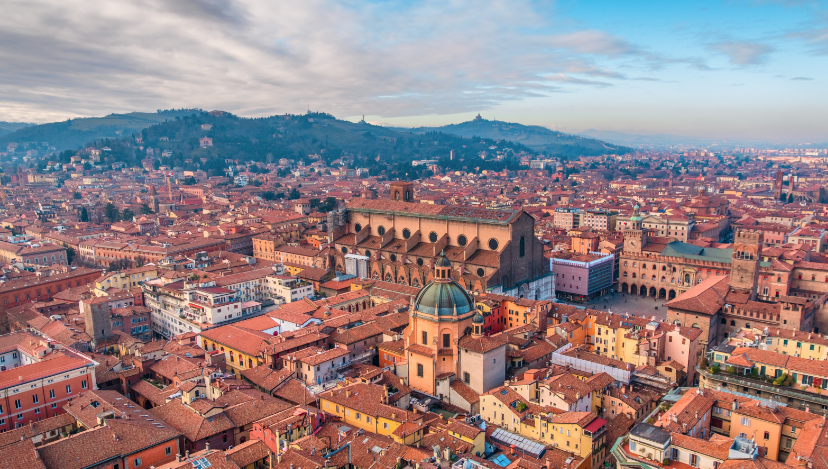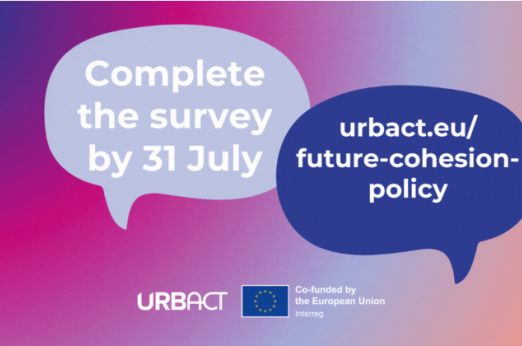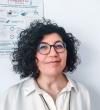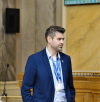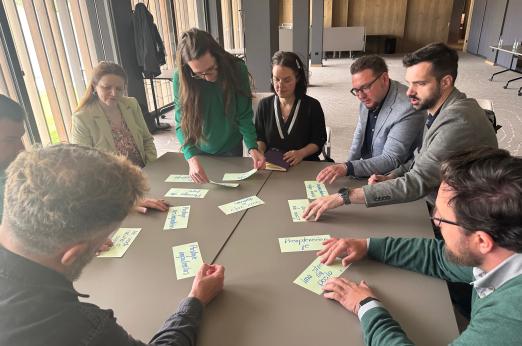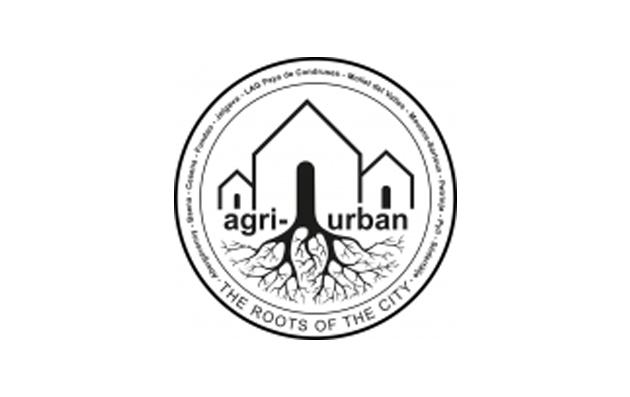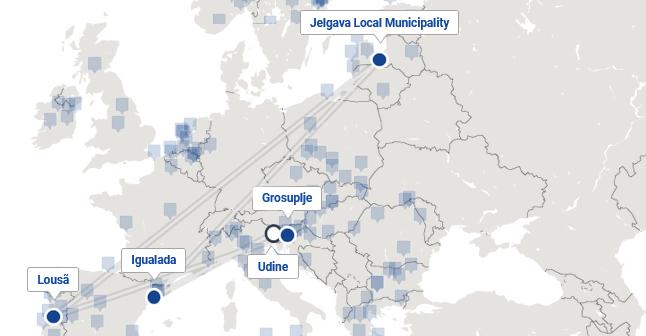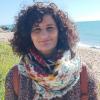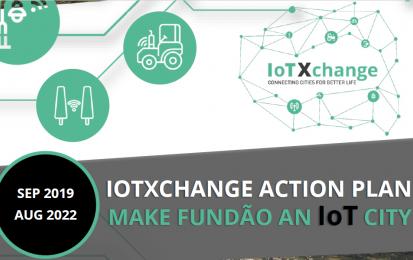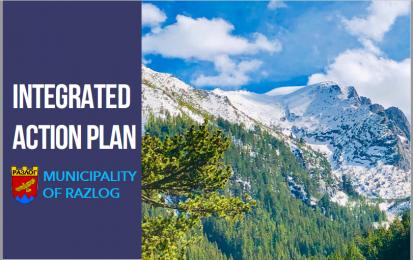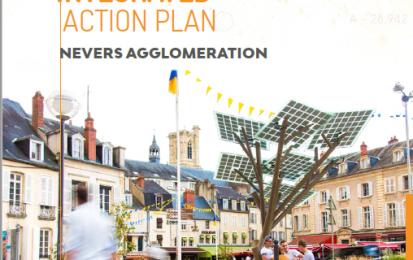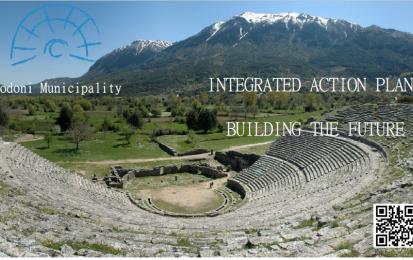Among its core objectives, the EU cohesion policy has set as a first priority to create a more competitive and smarter Europe. But what does it mean to take the leap towards the digital transition? Read on to get a glimpse of how URBACT cities have faced today's challenges using tech solutions and ideas.
Piraeus (EL)
Blue Growth Entrepreneurship Competition
As part of its efforts to create new jobs and innovation opportunities within the local economy, Piraeus launched its blue growth entrepreneurship competition, which is recognised as an URBACT Good Practice. As a coastal city, with a strong maritime industry, it’s in the best interest of the city and its citizens to explore and take a dive into the blue economy. At the core of its practices it’s a contest, where business plans are prepared and submitted by aspiring entrepreneurs and then compared and judged against a set of predetermined criteria. The aim is to get potential entrepreneurs to explore new opportunities and set up growth opportunities within the digital economy.
One past winner is the Ferryhopper – an online ferry-ticketing marketplace that helps consumers with access to multi-trip tickets, which are sold by a whole range of different transport operators. This competition is an interesting example of how to intersectional priorities, with tech and digital opportunities in mind, can offer a huge potential. Piraeu’s experience has led the city to become Lead Partner in two Transfer Networks: BluAct (2018 - 2021) and BluAct Second Wave (2021 - 2023). The results have been outstanding and this Good Practice has become a source of inspiration beyond the EU. Most recently, the United Nations Development Programme has taken interest in it and the BluAct team has presented its work to citymakers in different countries.
Promotional video for the competition led by Mataro (ES), Project Partner of the BluAct Transfer Network
Jelgava (LV)
Supporting environmental data
As a Project Partner of the IoTxChange Action Planning Network (2019 – 2022), which was led by Fundão (PT), the city of Jelgava uses Internet of Things sensor technology since July 2021 to measure local meteo and environmental data. The municipality has seized the testing activities budget to use IoT as a policy instrument for the city change, with an overall goal to support farmers, other stakeholders and, more broadly, the civil society. As a pilot, Jelgava installed four stations with IoT connections in the downtown and farmers’ premises. Different type of data is collected – air temperature, soil humidity, rainfall, wind speed and wind direction – using two different heights, at 2 and 10 meters high, which is considered as proof of concept for the data validation, which should play a role if new sensors should be put into place.
Bassa Romagna (IT)
An app for sustainable food chain
Comprised by nine municipalities, the Union of Bassa Romagna took part in the FOOD CORRIDORS Action Planning Network (2019 – 2022) to promote sustainable food systems in the framework of health, environment and climate change. Using an integrated approach, this territory has chosen to focus on the local economy by, among other things, enabling the creation of food start-ups and relying on tech to innovate the local value chain. When it came to social and environmental aspects, the concept of proximity, also known as “food to fork” or “0 km”, was key. Together with their URBACT Local Group, the municipalities planned different actions on food redistribution to support NGOs and tackle poverty, while avoiding waste – a surplus for solidarity.
Other actions included territorial marketing initiatives to support responsible and health local food consumption. In addition, during the lifespan of the network, people became increasingly aware of the potential of digital tools, due to the pandemic’s constraints. Such context and ambitions led the network to use its testing activities budget to develop a brand new app. Currently available for Android phones, the app collects the geolocation of local producers, featuring the history of the companies, local markets and even tourism farms and other information for citizens and potential consumers in the area. New features are still on the making, notably for creating a repertory of typical local products. Other functionalities are also under reflection, such as food redistribution.
Saint Quentin (FR)
Engaging all citizens in the digital revolution
Saint Quentin’s has taken part in two Action Planning Networks (2019 – 2022), DigiPlace and ACTIVE CITIZENS. Following a strong political desire to face the main challenges of the future together – and implementing its 2050 strategy with a people-centric city approach – the city has also defined its digital plan. Based upon the principles to use new technologies to promote sustainable development, reduce costs and support local stakeholders in the ownership of digital tools, the city wanted to tackle the digital divide. Even if most public administrative services were made digital – as taxes and health services – about 20% of the local population were still feeling excluded to a lack of digital skills. This has prompted the city to invest, mainly through municipality, regional and state funds and other local resources, in activities to get closer to citizens, in simple but effective ways. The city has established several Solidarity Hubs, community spaces where people can access ICT facilities and support. Social cohesion is at the heart of ACTIVE CITIZENS, reason why the network was an occasion to further explore an involve locals in this inclusion process.
Barnsley (UK)
Adapt or die
As a British medium-sized city with big ambitions, the city has long been keen to develop a “new” economy based on innovation and the Industry 4.0, following the contracting of the mining industry in the 1980’s. A story many European cities and towns can relate to. To this end, for more than a decade the city has committed to growing higher value jobs, particularly within its creative, tech and digital sectors. At the heart of recent successes are the Barnsley Enterprise – an entrepreneurship programme, providing a one-stop-shop for local businesses that seek the City Council’s support – and the Digital Media Centres, physical hubs for creative and digital initiatives.
Barnsley was awarded an URBACT Good Practice label and has led three URBACT projects: the TechTown Action Planning Network (2015 – 2018) and the Transfer Networks Tech Revolution (2018 – 2021) and Tech Revolution 2.0 (2021 – 2023). Thanks to these experiences, the local council has developed beyond the town itself and, in 2022, was asked to pilot a regional digital strategy. Such achievement will allow the city to carry on its principles, while expanding its activities including in universities, residential, retail and travel facilities.
Barnsley (UK) interview during the Lisbon URBACT City Festival in 2018
Nyiregyhaza (HU)
An active business system to support the digital economy
Through its participation in the TechTown Action Planning Network (2015 - 2018) and, later, in the Tech Revolution Transfer Network (2018 - 2021), Nyiregyhaza has witnessed big transformations. The city has set up an active – and coordinated – business support service within its arms length Industrial Park Company. The city is now home to a new Technology and Innovation Centre with a stable operating budget, provided by the municipality, and with six full-time staff members, working on economic development, business support and investment promotion. The mayor now lists economic development and job creation as key priorities and seeks to focus on growth within the digital economy.
Oulu (FI)
Smart bins and digital twins
During its participation in the DigiPlace Action Planning Network (2019 – 2022), the city of Oulu (FI) collaborated with a start-up to develop an app for enabling waste collection on-demand for citizens as well as active monitoring of municipal waste bins. The on-demand option allows residents to use the app to request a collection when their bin is getting full, which leads to a collection being dynamically scheduled into the waste company’s collection route. This uses AI algorithms to calculate the optimal route for waste collection vehicles to move around the bins that need to be collected in the most efficient manner, only visiting bins when needed. A similar algorithm is linked with the municipal bin monitoring system, which tracks how much waste is in over 1 000 of the city’s bins using sensors, and schedules bins into the collection cycle when they become close to being full.
This experience has resulted in a 40% reduction in both the number of collections and of the number of vehicles needed in the fleet, with the associated reductions in cost and carbon emissions. Similarly, the Lead Partner of DigiPalce, the municipality of Messina (IT), has active management of its waste services using a network of sensors, cameras and associated machine learning and AI algorithms. These are both great examples of existing technology and know-how – IoT sensors, route optimisation, machine learning and video recognition – being combined to tackle real city challenges or to improve the efficiency and effectiveness of city services, while also learning from peers.
Bielsko – Biala (PL)
Creating a digital economy
Through their participation in the AS-TRANSFER Network (2021 – 2023) – a pilot collaboration between URBACT and the Urban Innovative Actions (UIA) to mainstream the lessons learnt from previous project – the municipality of Bielsko-Biala has drawn inspiration from the AS-FABRIK initiative in Bilbao (ES). The original project consisted of developing a comprehensive concept that offered new training schemes, partnerships and actions to accelerate digitalisation and boost innovation startups in the Spanish city. Throughout the pilot, the Polish city has developed in a participatory way an investment plan to further seize the Industry 4.0. The city has long been a pioneer when it comes to tech. Back in 2014, Biesko-Biala opened its first creative space and Poland’s first ever FabLab. If successful, the investment plan will enable the city to create a well-connected and vivid local innovation ecosystem with its existing Digital Innovation Hub at heart.
Aveiro (PT)
A card to simplify local services
Following Aveiro’s participation in the CARD4ALL Transfer Network (2018 – 2021), the city has become known as a digital cluster, a territory of innovation with a strong knowledge economy, dynamic university, centre for telecoms R&D, and innovative firms in the digital and traditional sectors. However, the increasing development of new digital solutions had created a complex system of providers, interfaces and information sources for various services around the city, which was increasingly hard for local people to navigate.The Municipality has been wanting In an attempt to simplify citizens’ access to public services and transform Aveiro into a smarter, more open, resilient and inclusive society, the municipality an Urban Innovative Actions (UIA) project in 2018. The Aveiro STEAM CITY, supporting the adoption of 5G and Internet of Things technologies. Based on the URBACT Good Practice of Gijon (ES), the Lead Partner from CARD4ALL, Aveiro has started by introducing a common card for all students across its different schools.
All services provided by the municipality and schools can be managed and paid with it. This includes the cafeteria, school supplies, photocopying, even access to the buildings and school-day extensions. Crucial preparatory actions included mapping different systems to ensure compatibility and ease of use. Almost simultaneously, the city also activated new online services, with a wide range of options. Today, different municipal departments are working together to create a broader citizen card system covering almost all sectors of local life, including mobility, education, sports, culture, tourism and IT. Each department acts as an intermediary with their own external service providers and concession holders, encouraging strong cross-sectoral cooperation.
Keeping up with the Digital Transition
URBACT's brand new online course
URBACT is committed to improving the digital transition in all programme activities: in EU responses to urban challenges and in the planning processes of all URBACT cities. Unsurprisingly, digital is among the three crosscutting priorities for this programming period (2021 - 2027) – alongside the green and the gender themes. Time after time, the programme has supported the knowledge dissemination on the subject, with TechPlace and, most recently, the Keeping Up with the Digital Transition Moodle, which is open to anyone who takes an interest in this topic.
Digital solutions and ideas are coming at us thick and fast, and it can be hard for city staff and politicians to keep up. It’s therefore important for cities to be able to navigate around this universe and take advantage of its full potential. Cities have a vital role to play in the digital transition, alongside the private sector. From green matters to participative governance, from education to economy, digital solutions can help urban practitioners to deliver better and more integrated approaches at local level. Start the course now and build your capacities!
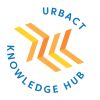
After reading these 10 examples, we trust that you will be as enthusiastic as we are to keep up with the digital transition across Europe.
To find out more about TechPlace and other resources, be sure to check the URBACT Knowledge Hub!






